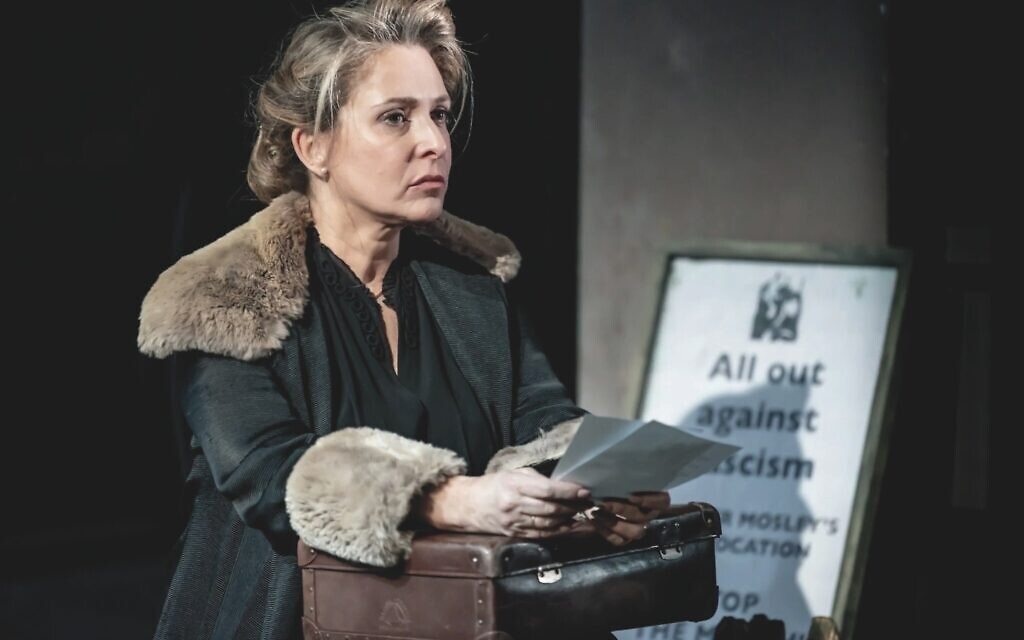More security for Tracy-Ann Oberman following death threats
Currently starring as Shylock in the West End, the actor who fights hate has become a target of it
When you put a creative endeavour out into the world you hope that it might tap into a Zeitgeist. But for Tracy Ann Oberman there is a discomfort too – her radical interpretation of Shakespeare’s antisemitic play The Merchant of Venice has come at a time when we seem surrounded by Jew hatred.
Just this weekend there has been a call for more security to protect Tracy and the cast as the actress has received death threats. To be the focus of media attention because of that was not what she wanted for her passion project. Ironically there was an extensive education programme about antisemitism and the Battle of Cable Street before #MOV1936 (Merchant of Venice 1936)opened at the Watford Palace Theatre.
Tracy who plays a female Shylock living in the East End of 1936, has also spoken in schools and with local leaders, emphasising the fact that the play is about antisemitism, but also the hatred for immigrants which everyone needs to come together to fight.
Directed by Brigid Larmour, this small but powerful production presents Shylock as an immigrant woman and her adversaries as aristocratic 1930s British fascists.
Get The Jewish News Daily Edition by email and never miss our top stories Free Sign Up
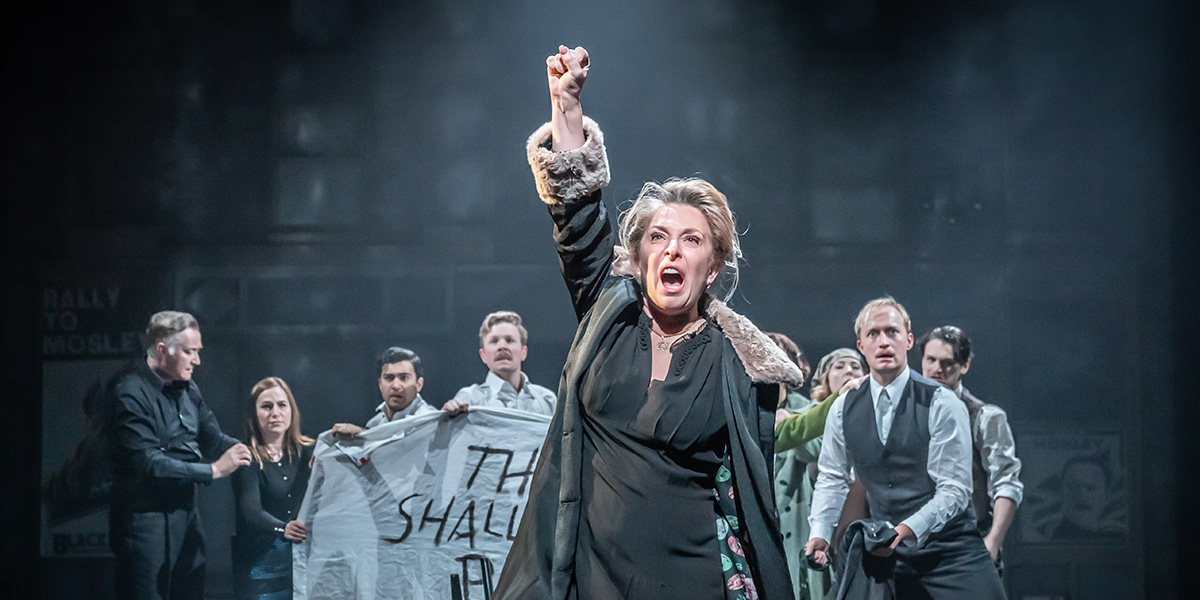
Beginning the year with a second showing at the RSC in Shakespeare’s birthplace, Stratford Upon Avon, it opened at the West End’s Criterion Theatre and was promptly nominated for a best revival WhatsUp Theatre award. But what has moved Tracy most are the many letters she has received from fellow Jews afraid of the rise in antisemitism and non-Jews who gained an understanding of Jew hate by watching the play.
“ I received a letter from a woman whose parents were Holocaust survivors but she had been taught to her to hide her Jewish heritage,” says Tracy. “But seeing the play had emboldened her to embrace it. Leaving the theatre one night I overheard an older English lady telling her friend, ‘I had no idea what antisemitism was before, but I do now’. The other woman said, ‘It must have been very difficult for Jewish people in the 1930s,’ to which her friend replied, ‘I don’t think it’s easy for them now.’ I think people can see this is a project spoken from the heart.”
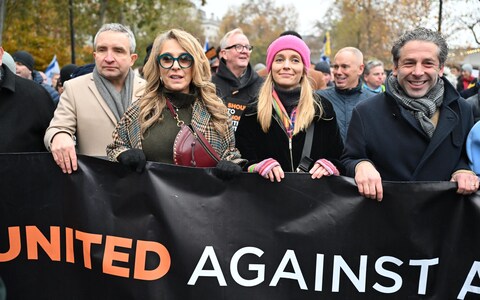
Tracy first started speaking out about antisemitism in the Jeremy Corbyn years. ‘”t did feel like a great risk as people were very pro-Corbyn in my industry. But I think they could see I was speaking with integrity and if they liked me, they would at least listen to what I had to say. I think courage calls to courage everywhere and if you do speak about your truth, it encourages others to think and to open up.”
It was during those Corbyn years that this project was first conceived after a chance meeting at an awards ceremony with Brigid Larmour.
As the director of a theatre frequented by many Jewish patrons, she was already aware of antisemitism and how art could help in the education of that.
“When I was at school I was really interested in history and remember watching the famous series The World at War and learning about the Holocaust,’ she says. ‘As I grew up, I sometimes found myself in circles where people would talk about Jews in an Agatha Christie-type of way – they ‘oh they are not quite the ticket’ and that always used to shock me.”
When Tracy mentioned her idea of a radical change to The Merchant, Brigid was all in, but Covid and the closure of theatres intervened. When it did open it was playing to packed houses around the country. But Post October 7 there was a new reality for Jews.
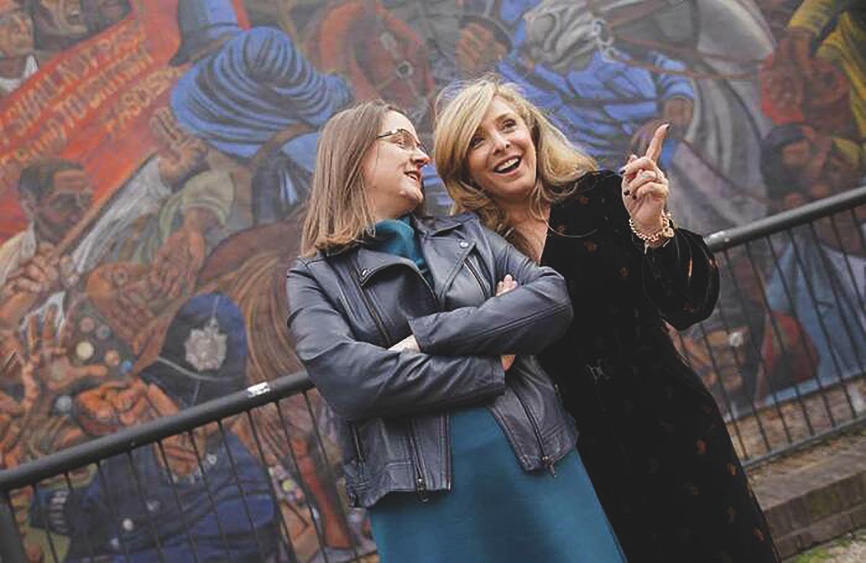
Brigid says she mourned with the Jewish members of her cast even as she also became alert to the modern manifestation of antisemitism.
“I think after October 7 all of us in the company had an insight into what the antisemitism, we explore in the play felt like,’ she says. “We felt the pain and fear of our friends and colleagues and then noticed how little sympathy there was in some quarters. It’s to terrible to think that anyone believes this should turn into a proxy war against British citizens.”
There are hopes that after its West End stint, the play could could even head to the States.
“That would be the dream, wouldn’t it?’ says Tracy. ‘The show has grown and grown.” It has also taken on all sorts of extra cadences because of the Israel/ Hamas war, but the ending that Tracy and Brigit give the show – based on the Battle of Cable Street – means that as much as it is about hatred, it is also about love, togetherness and community.
“It’s a plea for tolerance and for understanding each other better,’ says Tracy. ‘Because once we do that, we can stand together for each other.”
Before having the joy of taking her play stateside, Tracy is previewing another and this time it’s a musical. What Ever Happened to Baby Jane? was the 1961 cult horror film that brought Hollywood’s two greatest rival divas together on screen at a time when both felt unloved by the studios.
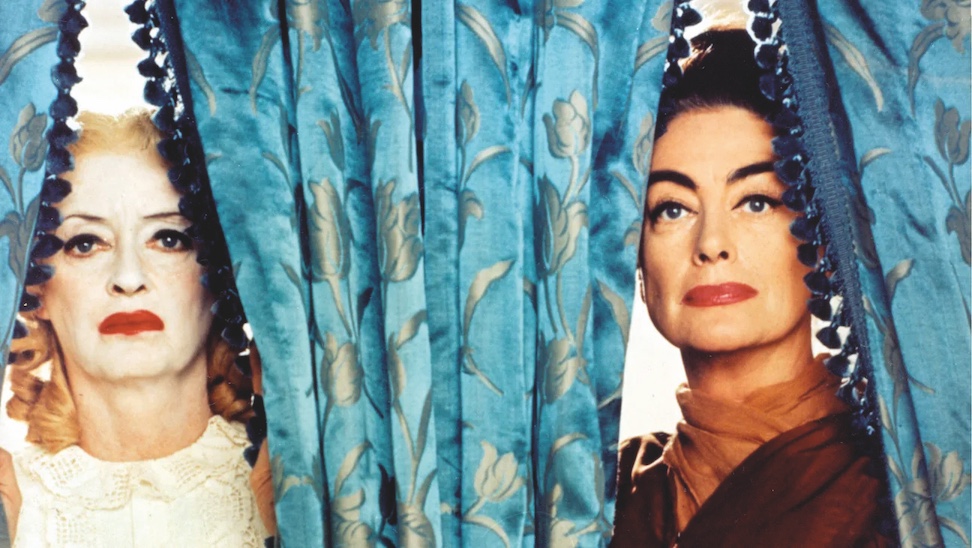 The making of that movie was the subject of Tracy’s play for BBC radio and now Bette and Joan and Baby Jane: The Musical has those legendary much missed stars breaking into song in the show the actress has created with Shaun McKenna with music by James Cleeve and lyrics by Nikki Racklin. On Sunday 4 March JW3 is giving a sneak performance preview (4pm and 7.30pm) with Olivier-nominated Sophie-Louise Dann as Bette and Anna Francolini as Joan. “Why did I write the play?” says Tracy, “Because I wanted to understand what was really behind the antagonism between these two very different women: both iconic actresses, both fading from the height of their power, now forced together in an unhappy alliance to make cinema history. To now see my play as a musical only enhances its’ magic for me.” Long may that magic continue.
The making of that movie was the subject of Tracy’s play for BBC radio and now Bette and Joan and Baby Jane: The Musical has those legendary much missed stars breaking into song in the show the actress has created with Shaun McKenna with music by James Cleeve and lyrics by Nikki Racklin. On Sunday 4 March JW3 is giving a sneak performance preview (4pm and 7.30pm) with Olivier-nominated Sophie-Louise Dann as Bette and Anna Francolini as Joan. “Why did I write the play?” says Tracy, “Because I wanted to understand what was really behind the antagonism between these two very different women: both iconic actresses, both fading from the height of their power, now forced together in an unhappy alliance to make cinema history. To now see my play as a musical only enhances its’ magic for me.” Long may that magic continue.
The Merchant of Venice 1936 is at the Criterion until March 23. Tickets: http://merchantofvenice1936.co.uk and Baby Jane http://jw3.org.uk

Thank you for helping to make Jewish News the leading source of news and opinion for the UK Jewish community. Today we're asking for your invaluable help to continue putting our community first in everything we do.
For as little as £5 a month you can help sustain the vital work we do in celebrating and standing up for Jewish life in Britain.
Jewish News holds our community together and keeps us connected. Like a synagogue, it’s where people turn to feel part of something bigger. It also proudly shows the rest of Britain the vibrancy and rich culture of modern Jewish life.
You can make a quick and easy one-off or monthly contribution of £5, £10, £20 or any other sum you’re comfortable with.
100% of your donation will help us continue celebrating our community, in all its dynamic diversity...
Engaging
Being a community platform means so much more than producing a newspaper and website. One of our proudest roles is media partnering with our invaluable charities to amplify the outstanding work they do to help us all.
Celebrating
There’s no shortage of oys in the world but Jewish News takes every opportunity to celebrate the joys too, through projects like Night of Heroes, 40 Under 40 and other compelling countdowns that make the community kvell with pride.
Pioneering
In the first collaboration between media outlets from different faiths, Jewish News worked with British Muslim TV and Church Times to produce a list of young activists leading the way on interfaith understanding.
Campaigning
Royal Mail issued a stamp honouring Holocaust hero Sir Nicholas Winton after a Jewish News campaign attracted more than 100,000 backers. Jewish Newsalso produces special editions of the paper highlighting pressing issues including mental health and Holocaust remembrance.
Easy access
In an age when news is readily accessible, Jewish News provides high-quality content free online and offline, removing any financial barriers to connecting people.
Voice of our community to wider society
The Jewish News team regularly appears on TV, radio and on the pages of the national press to comment on stories about the Jewish community. Easy access to the paper on the streets of London also means Jewish News provides an invaluable window into the community for the country at large.
We hope you agree all this is worth preserving.
-
By Brigit Grant
-
By Laurent Vaughan - Senior Associate (Bishop & Sewell Solicitors)
-
By Laurent Vaughan - Senior Associate (Bishop & Sewell Solicitors)
-
By Laurent Vaughan - Senior Associate (Bishop & Sewell Solicitors)
-
By Laurent Vaughan - Senior Associate (Bishop & Sewell Solicitors)


